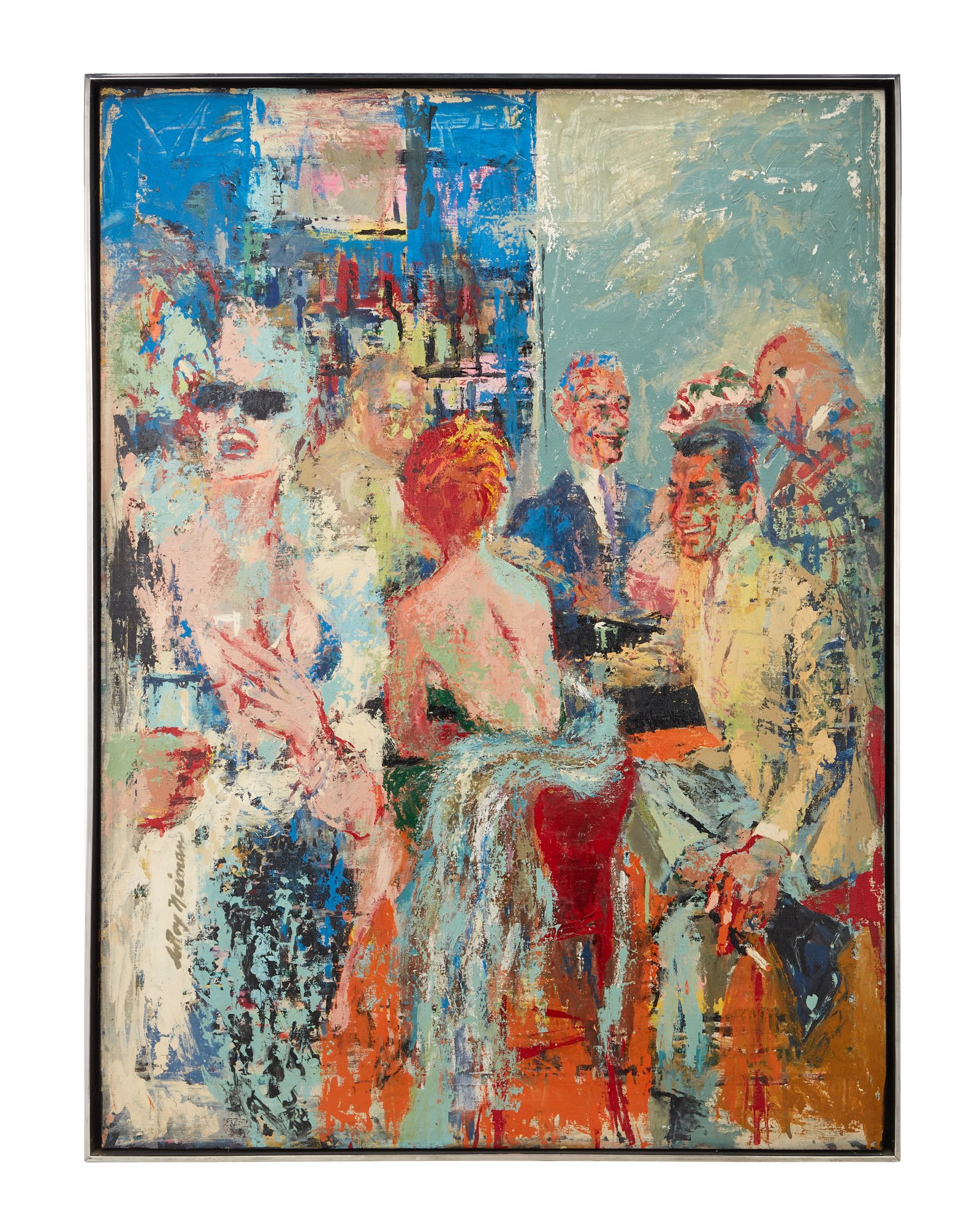
As far as artwork mattered to Hugh Hefner, the hand-painted replica of his Hollywood Boulevard star held a sentimental spot. It stood above the fireplace in the master bedroom of his Playboy Mansion, a little pink reminder of his immortality in the entertainment industry.
Then again, the notorious Holmby Hills party house teemed with tributes to Hefner’s greatness. There was the faux-Renaissance portrait of him in a crimson smoking jacket looking like a young Robert De Niro, the bronze sculpture of him as a pipe-blowing satyr, the larger-than-life photograph in the Great Hall of him appearing omniscient in his signature captain’s hat.
These are among the more than 400 Hefner and Playboy-related collectibles set to hit the block in Los Angeles via Julien’s Auctions between March 28 and 30.
For good measure, it’s been branded a Marilyn Monroe collaboration and includes 100-odd lots that speak to her life and career (sometimes titillatingly, as with a hot pink Pucci dress; other times rather more mundanely, as with the numerous checks and receipts).
Hefner the producer, Monroe the product: it’s an apt, if somewhat unsettling, pairing. Monroe fronted the first Playboy in 1953 after Hefner bought nude photos of the star from a calendar company for $500 (Monroe received a mere $50). It sparked an obsession Hefner chased into the afterlife by being buried in the crypt beside Monroe. The cost of such posthumous proximity? $75,000.
An original copy of the first issue of Playboy magazine. Photo courtesy of Julien’s Auctions.
While the auction’s more arresting items include Hefner’s custom-made circular bed (a “back up,” mind you) and a full lineup of the iconic high French-cut leg bunny costumes, the centerpiece is the collection of fine artwork.
This begins with the watercolors of Peruvian American artist Alberto Vargas, whose airbrushed pinup girls defined Playboy’s aesthetics in the 1960s and 1970s. Two dozen works are on offer. These include 1963’s apple-clutching, heel-wearing nude (estimated between $20,000 and $30,000) and 1969’s white veiled bride to be (estimate: $30,000–$40,000) with the accompanying caption, “There’s nothing wrong with premarital sex, as long as it doesn’t hold up the ceremony.”
Another early Playboy staple were the black ink drawings of LeRoy Neiman. In 1955, Hefner commissioned Neiman’s femlins, a portmanteau of female gremlin, and for 50 years, his opera-glove wearing creations appeared between Playboy’s covers in varying poses of sport and leisure. Seventeen drawings are on offer. A 1958 femlin, seen luxuriating in a bucket of champagne, is set to fetch between $4,000 and $6,000.
Leroy Neiman, Femlin With Champagne (1958). Photo courtesy of Julien’s Auctions.
The top lot from Neiman, however, speaks more to celebrity than sex. It’s a brightly colored oil painting that crushes movie stars of the late ‘50s around the bar of Romanoffs, then a favored Hollywood haunt. The canvas with Monroe, Cary Grant, and an anonymous redhead has an upper estimate of $80,000.
Elsewhere, the auction evidences the longstanding platform Playboy offered to major artists. There’s the nine-photo collage of Patti D’Arbanville that Andy Warhol shot for a 1974 issue, pegged at between $60,000 and $80,000, and a series of Keith Haring posters ranging from $800 to $1,200.
Andy Warhol’s photo collage for the August 1974 issue of Playboy magazine. Photo courtesy of Julien’s Auctions.
As for Hefner and Playboy’s own collecting habits, perhaps unsurprisingly, much orbited around sex and the female form. This spans Salvador Dalí lithographs, Joan Miró posters, and traditional paintings by the likes of Jean-Jacques Henner. In art as in life.